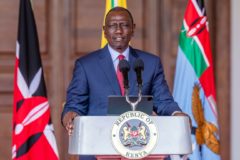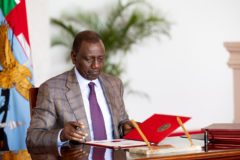Yesterday, the Nigeria Startup Bill (NSB) passed the third reading at the lower house of the country’s parliament, the House of Representatives.
This news comes exactly a week after the bill was passed by the Senate and passed to the House of Reps. With the passing of the third reading at the House of Reps, the bill has now completed its round at the National Assembly. A concurrence has been reached on the bill, and all that’s left for the bill to become law is President Muhammadu Buhari’s assent.
Of the 3 objectives of the bill, the most critical is bridging the engagement gap between startups and regulators and ensuring that harmful regulations that harm Nigeria’s tech ecosystem are shut down.
Is a presidential assent possible?
It is likely that Nigerian president Muhammadu Buhari will assent to the bill given the bill’s history. The bill was created by the Nigerian presidency, in collaboration with 30 tech leaders including Ventures Platform founder Kola Aina and Future Africa founder Iyin Aboyeji, NITDA officials, and the minister of digital economy Isa Pantami.
President Muhammadu Buhari himself passed the bill to the National Assembly earlier this year. In an instance where the president refuses to give his assent, the 2 legislative houses—the Senate and House of Reps—can recall the bill and pass it into law, even without the president’s assent.
Nigeria’s tech ecosystem may have a bright future ahead of it.
The timeline of the bill
June–September 2021: The Nigeria Startup Bill draft is created by the Nigerian presidency, in collaboration with 30 tech leaders including Ventures Platform founder Kola Aina and Future Africa founder Iyin Aboyeji, NITDA officials, and the minister of digital economy Isa Pantami.
October 2021: A draft of the bill is submitted to the Presidency and the Federal Executive Council (FEC).
December 2021: The Federal Executive Council (FEC) approves the bill.
February 2022: Nigerian president, Muhammadu Buhari, passes the bill to the National Assembly.
March 2022: The bill reaches the National Assembly and is received by the Nigerian Senate.
June 2022: Lagos, Nigeria’s most populous state, announces plans to domesticate the bill at state level.
July 2022: Nigerian Senate approves the bill and passes it to the House of Representatives.
July 2022: The bill passes the third reading at the Nigerian House of Representatives






















